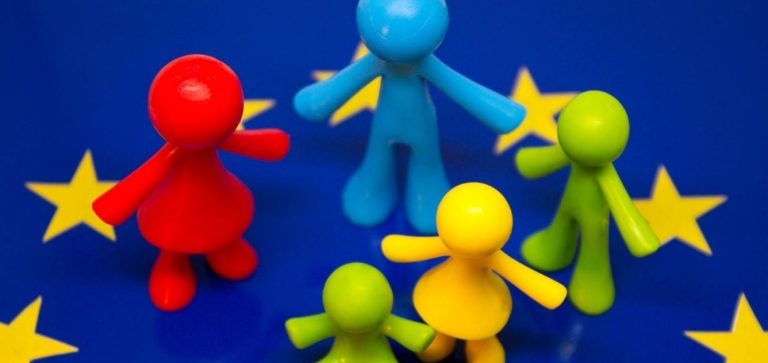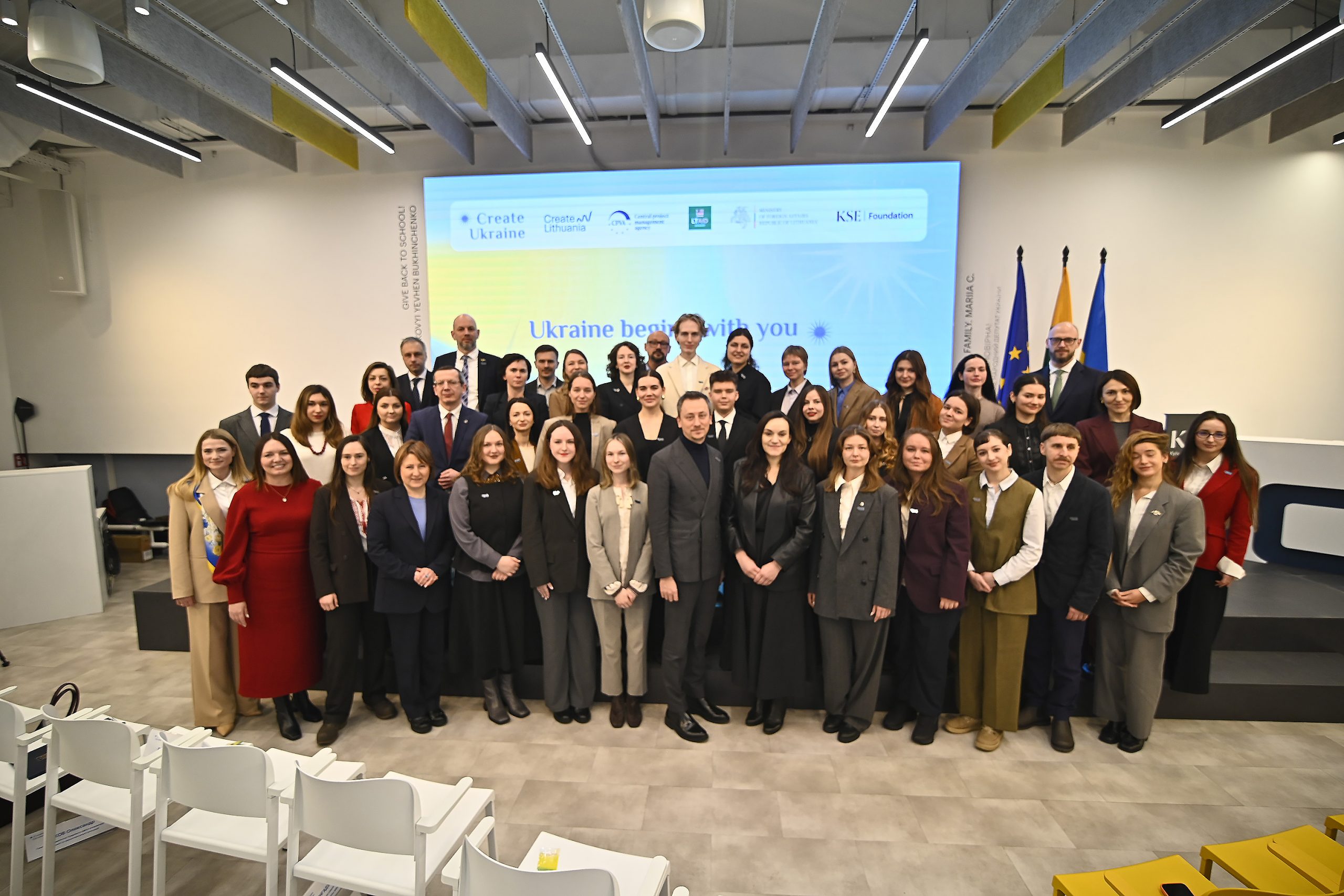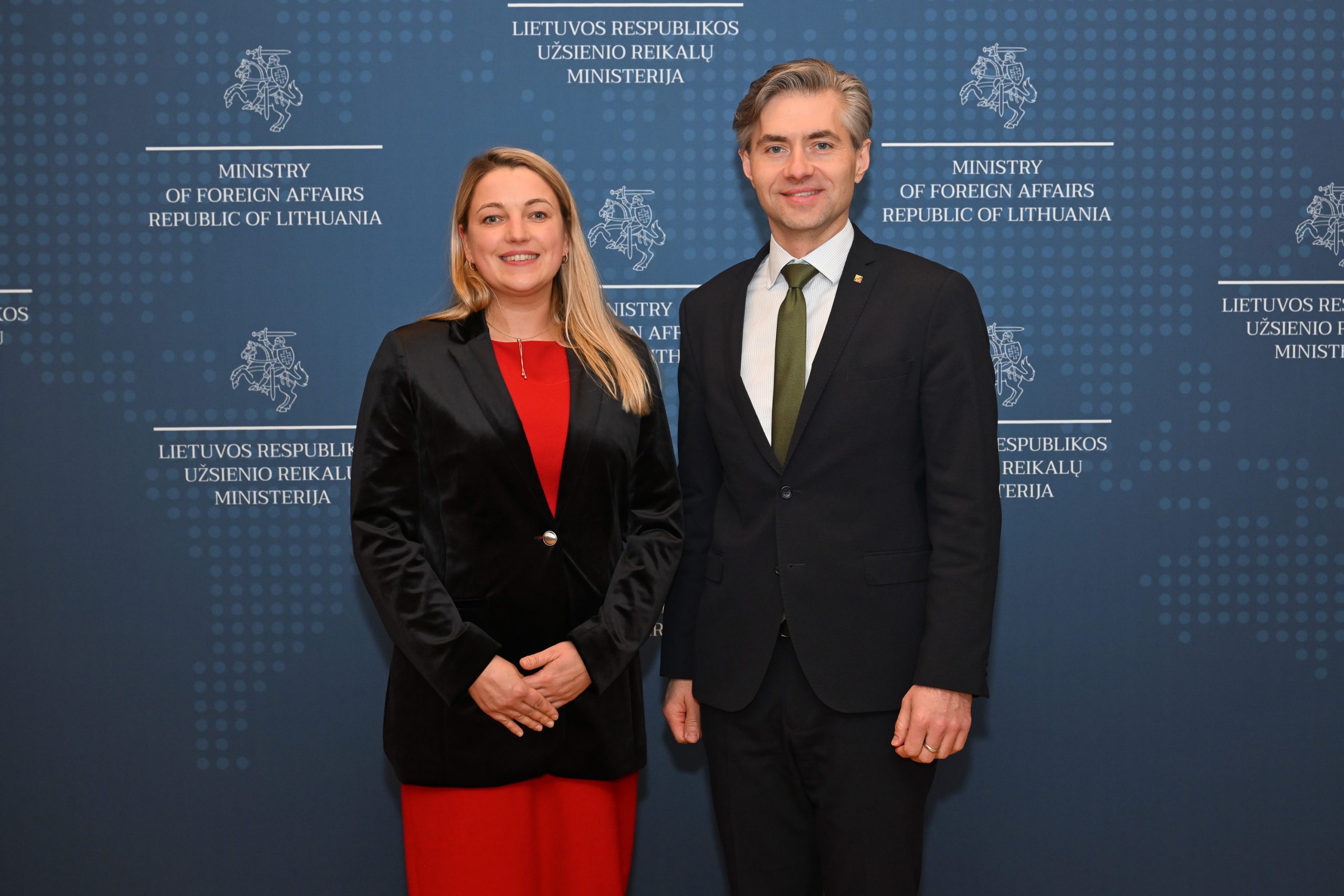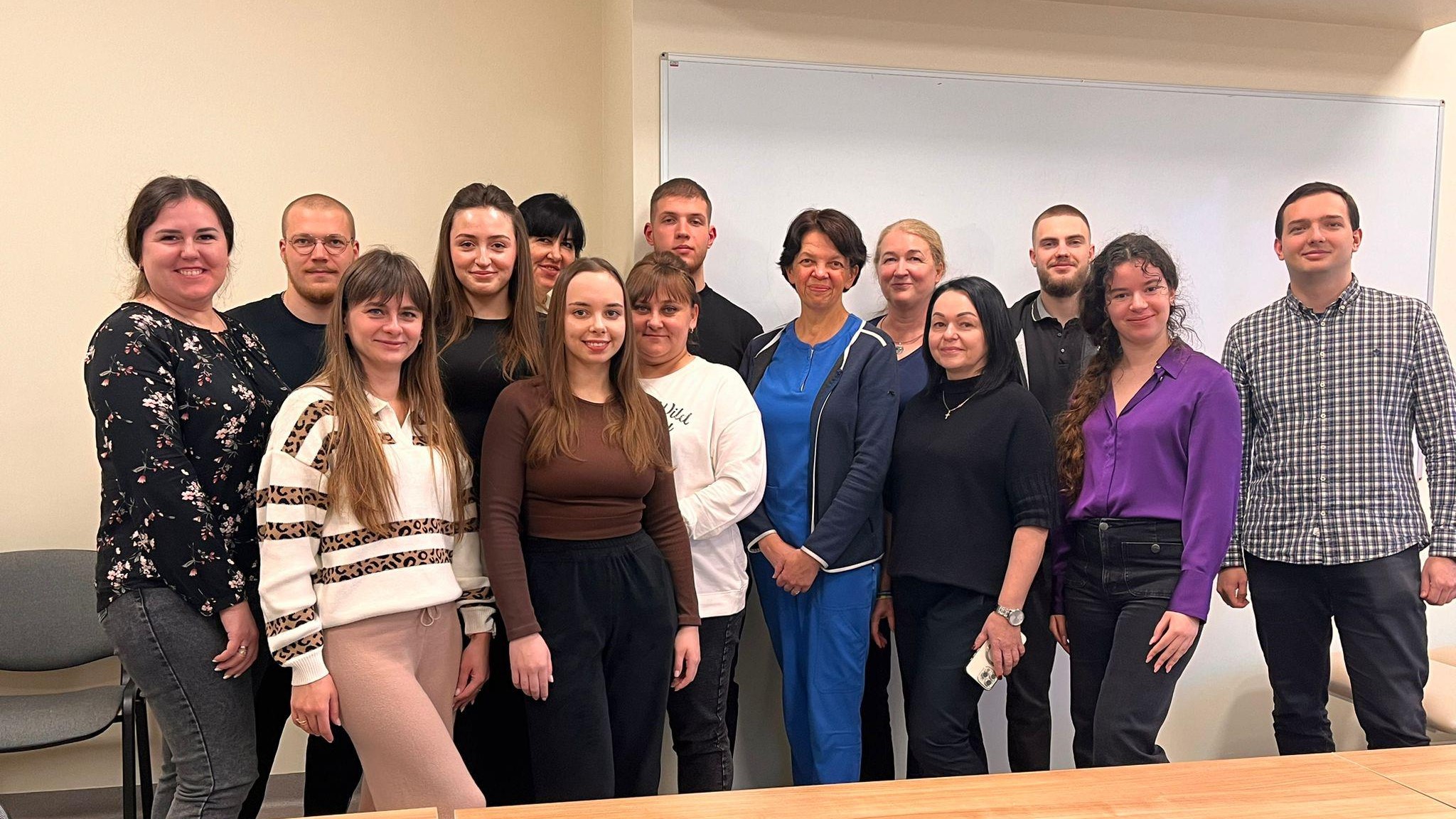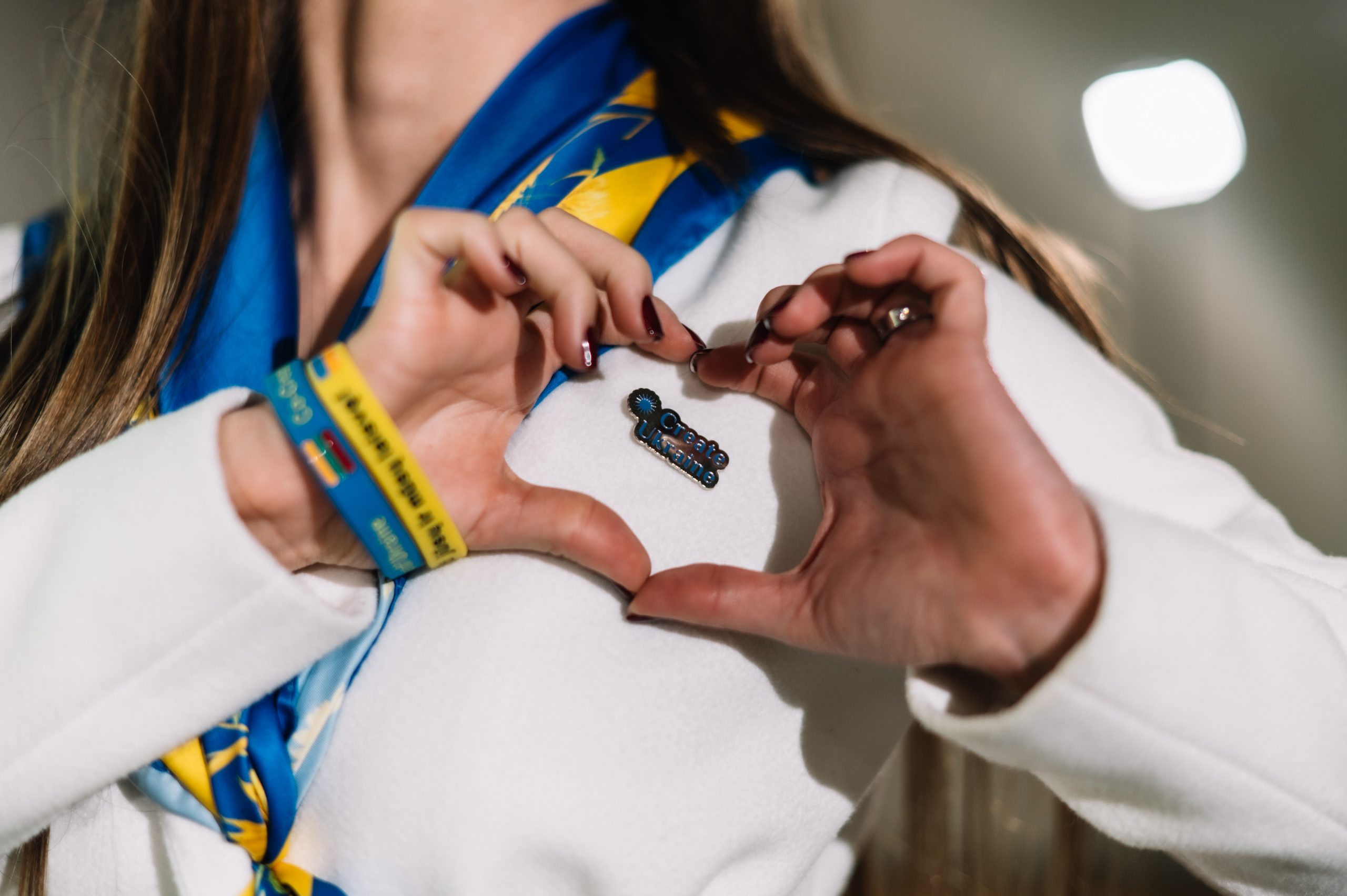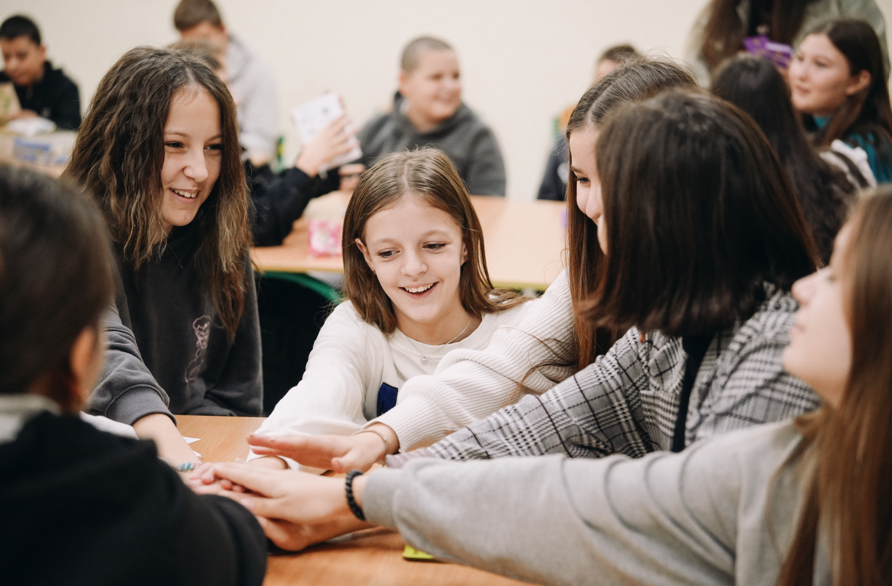On 17th of November, the opening event of Phase III of the EU4Youth programme took place, attended by the representatives from European Commission, European Union Delegations to the Eastern Partnership (EaP) countries, Director of Development Cooperation Department under the Ministry of the Foreign Affairs of the Republic of Lithuania (MFA), Ms. Rasa Kairienė, Director of the Central Project Management Agency (CPMA), Ms. Lidija Kašubienė, representatives from the Employment services in EaP countries, programme partners, including GOPA, Ernst & Young, College of Europe and other participants.
Programme opening event was organised after the European Commission and Central Project Management Agency (CPMA) signed the Contribution Agreement for the implementation of the EU4Youth Phase III Youth Employment and Entrepreneurship Programme earlier this year. The duration of the programme is 48 months with a budget of 15.12 million euros, 0,72 million of which is financed by the MFA.
Representatives of the European Commission Directorate-General for Neighbourhood and Enlargement Negotiations (DG NEAR) welcomed the launch of EU4Youth Phase III emphasizing that EU4Youth initiative has been an important instrument for the development of the youth sector in the Eastern Partnership countries. It was also noted that the programme will be a success only if it strengthens Policy dialogue and ongoing reforms in the Partner countries. The goal to gather the best practice of all the EU countries was specified.
Addressing the audience Ms. Rasa Kairienė accented that Lithuania, as a donor, has always attributed great importance to youth whose role is crucial for the development of sustainable and inclusive societies, while the new stage of EU4Youth will further strengthen cooperation between the European Union and the Eastern Partnership countries. According to the representative of MFA, the transfer and sharing of good practices and innovation will open up even more opportunities for young people to build a modern and sustainable future world.
Lidija Kašubienė, Director of the CPMA, gave a welcome speech sharing with the main focus on fostering an active participation and visibility of youth in society, economy, labour market, policy making of the Eastern Partnership countries, by stimulating them to achieve leadership, entrepreneurship and necessary skills and competencies for new economy. The Director of CPMA noted that this goal could be achieved with strong engagement of all the partners of the programme – civil society organisations working with youth, Youth Councils and other youth structures in Eastern Partnership countries, Public Employment Services, educational institutions, private sector “.
The participants of the opening event warmly welcomed the new initiative of EU4Youtyh and expressed their willingness for cooperation.
EU4Youth Phase III will be implemented by CPMA, which has more than 20 years of experience in managing and implementing various EU and other international donors; funded programmes and projects. The CPMA has the knowledge and capacity to ensure the smooth and productive implementation of EU funded programs and projects.
EU4Youth Phase III Youth Employment and Entrepreneurship is EU and MFA co-funded programme for and about the young people. The programme is dedicated to the EaP countries (Armenia, Azerbaijan, Belarus, Georgia, Republic of Moldova, Ukraine) and covers youth employment issues and promotes active participation of young people in society, economy and politics. Young people are also encouraged to improve develop leadership, entrepreneurship other skills needed to cultivate green economy and digital literacy. New challenges need to be tackled in new ways and the contribution of young people here is crucial.
The new EU4Youth phase will be implemented using few different approaches:
- A call for proposals for grants will be launched for projects aimed at promoting youth employment and entrepreneurship in the Eastern Partnership countries. The total value of the call for proposals is 8 million euro.
- The second important approach of the programme focuses on strengthening the competences fo institutions in the EaP countries with the aim to promote the development of human capital and implement active labour market policies with a strong emphasis on young people in vulnerable groups.
- The third direction of the EU4Youth programme is the provision of study grants to young people from the EaP countries to study at the Natolin Campus in College of Europe, with the aim to increase EaP youth’s understanding of of European politics and governance and foster multi-cultural learning.
About EU4Youth programme
An Eastern Partnership (EaP) Youth and Education package for 2017 – 2020 worth EUR 340 M was announced at the Eastern Partnership summit of 2017. As key part of this package, the EU4Youth initiative was deployed to support skills development and employability assistance to over 18,000 young people in the Eastern Partnership countries by 2020 – the majority from disadvantaged backgrounds and/or women. It also supported around 125 youth organisations directly (and many more indirectly), in addition to fostering the development of more effective policy responses to challenges for youth. Building on progress achieved under previous phases, the present action constitutes phase III of the EaP EU4Youth initiative.
While completing the EU’s financial commitment to youth support under the Youth and Education package, this new phase of EU4Youth will already contribute to achieving the objectives relating to youth under the March 2020 Joint Communication on the Eastern Partnership policy beyond 2020, which retains, with its New Deal for Youth, support to youth employment and entrepreneurship as well as youth participation and leadership in the focus of EaP cooperation.
Overall objective: to foster active participation of youth in both democratic life and in the labour markets of the beneficiary countries, with a focus on disadvantaged youth, thus contributing to sustainable and smart growth, social cohesion and reduction of inequalities in EaP societies.
